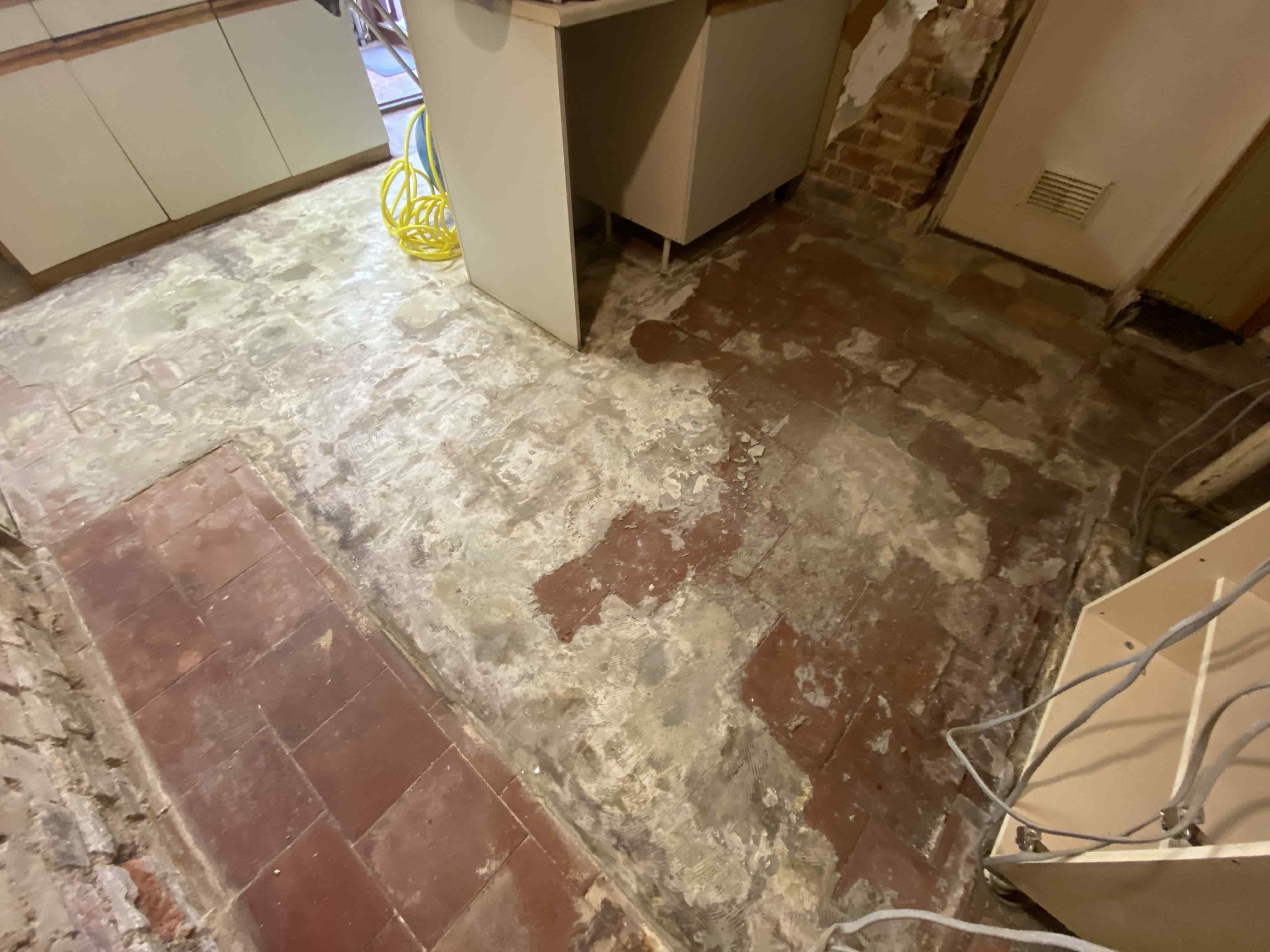We received a call from a repeat client in the historic town of Godmanchester who needed help with a Quarry tiled Kitchen floor. The property had several period features that were to be kept as part of the restoration project. In fact, we had been out to the property before having restored the brick hallway floor, Victorian tiled dining room floor and fireplace quarry tiles. It’s always nice to return to previous clients and is testament to how satisfied they are with our previous work. The project was progressing and this time it was the kitchen floor that needed restoration.

The kitchen Quarry tiles were in quote a state, with adhesive and screed poured over the surface from a previous occupant who had put down vinyl over the tiles. The current owner had managed to remove the vinyl but was unsure how to tackle the screed and adhesive, so we were asked to do the work. I ran some tests to work out the best way to approach the job and once I was satisfied, I was able to give them a price for the work. They were happy to go ahead so we arranged a mutually convenient time.
Cleaning Cement Screed and Glue off Kitchen Quarry Tiles
This was one of the hardest removals I can remember doing and, in the end, it took two and a half days of hard work to complete. I used an air powered needle gun and scrappers to remove the majority of screed and glue from the affected area but still had to resort to hammer and chisel in places.

To further clean up the tiles I then scrubbed the tile and grout with a strong dilution of Tile Doctor Remove and Go and Tile Doctor Acid Gel which was worked in together and then rinsed with water. The resultant soiling was then extracted using a wet vacuum. This process was repeated until I was satisfied the floor was as clean as it could be.
Sealing a Quarry Tiled Kitchen Floor
With no one living at the property the heating was not turned on and so I left the floor for a week to give it time to dry out. Also, on my return I tested the tiles with a damp meter to be 100% sure it was ready to take a sealer.
Given the age of the property we selected to seal the floor using Tile Doctor X-Tra Seal. The client didn’t want a high sheen finish, so this was the perfect solution. It’s a breathable impregnating sealer which is hardwearing and ideal for busy areas such as the kitchen. The first coat revived the colour and the second coat, added a nice subtle sheen finish.

My client was very pleased with the floor transformation and I was able to complete the restoration in time for the installation of new kitchen units the following month.
For aftercare cleaning I recommended the use of Tile Doctor Neutral Tile Cleaner, which is a gentle but effective pH neutral tile and grout cleaning product. This will keep the floor looking in great condition and ensure the newly applied seal retains its integrity.



Tile Doctor is the only Tile, Stone and Grout cleaning service in the UK on Trustpilot and with a 4.7 Star rating, based on over 1,300 verified customer feedbacks you can be certain you’re in good hands